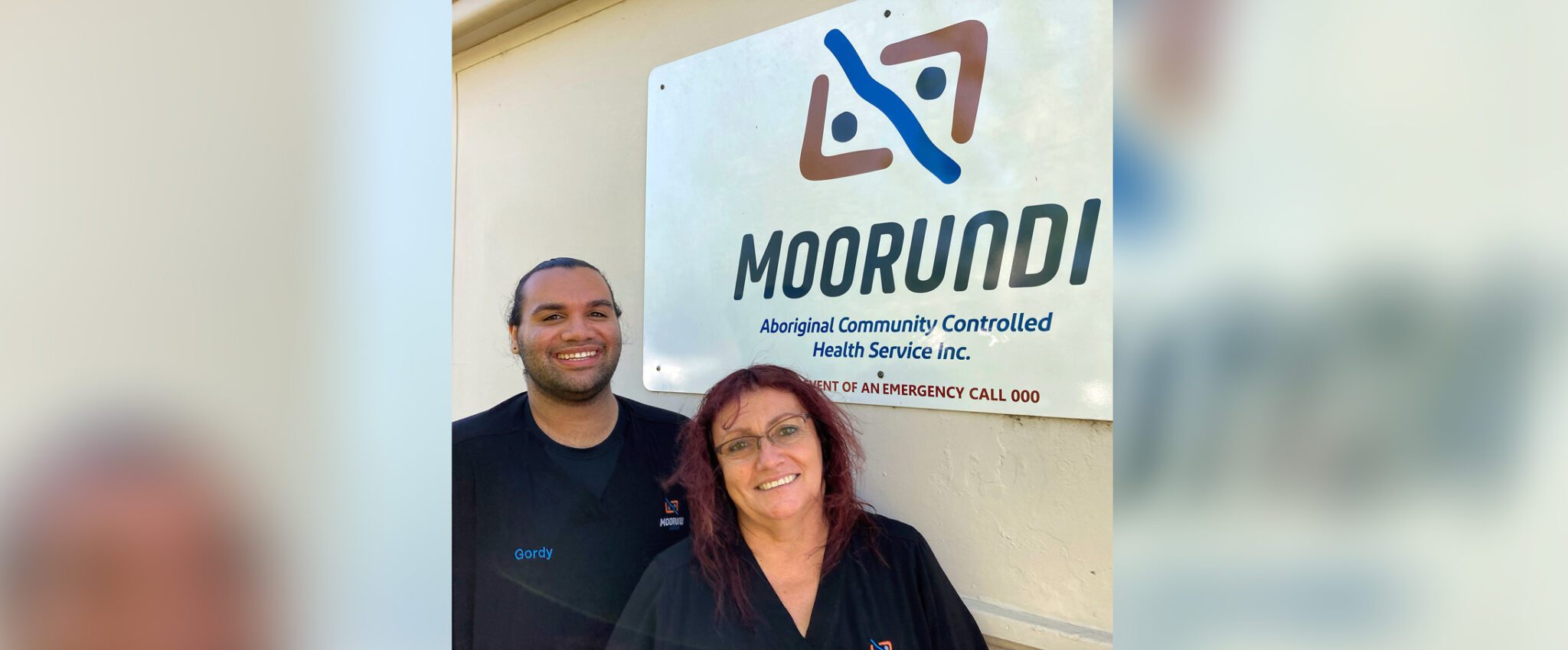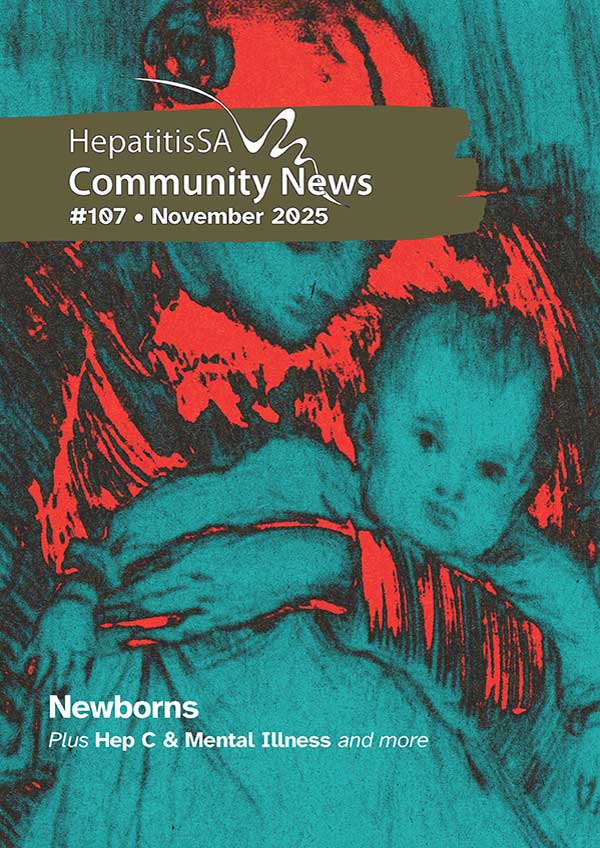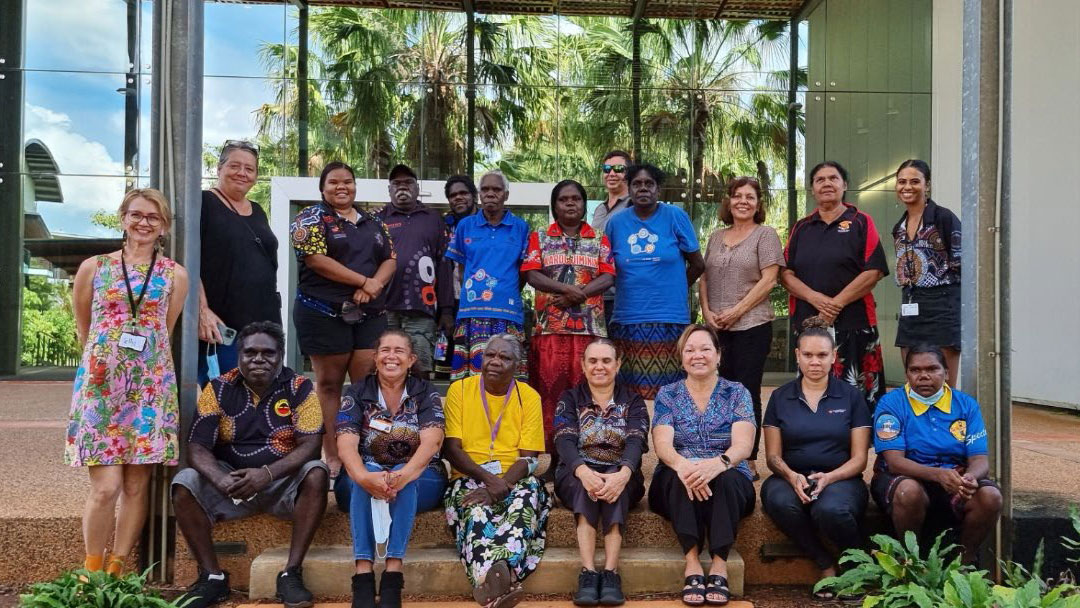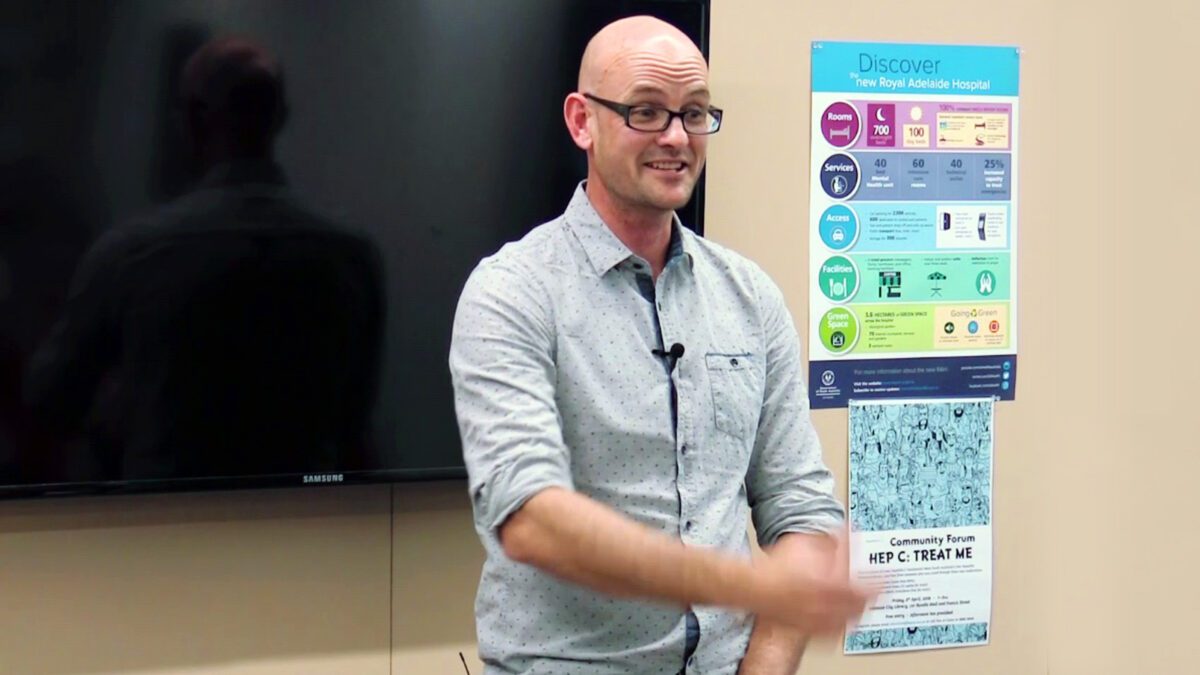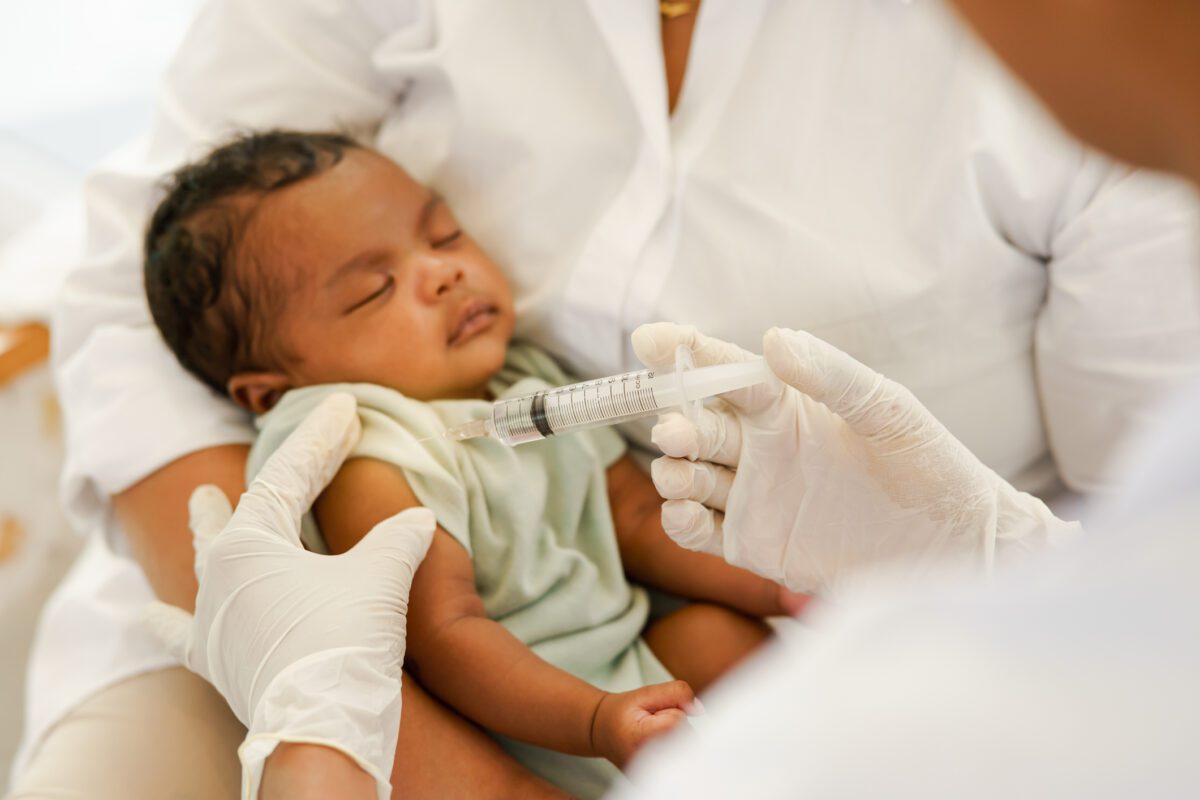Moorundi Aboriginal Controlled Health Service will soon be offering hepatitis C point of care testing (PoCT) to the community, along with its new Clean Needle Program (CNP) at the service’s Murray Bridge site. The initiative is part of a push to bring hepatitis rapid testing to regional South Australia, under the umbrella of the world-first National Australia HCV Point of Care Testing Program (HCVPOCT).
Aboriginal Health Clinical Director at Moorundi, Beth Hummerston, said hepatitis C point of care testing will work well at Moorundi’s clinics, particularly in Murray Bridge, because it will soon become a Clean Needle Program site.
“Community feedback was that the current options available to access clean needles are not places where people feel comfortable going,” she explained. “Having a Clean Needle Program available may provide opportunities to talk to people about hepatitis C testing and is a way of addressing disparities in health services for people who likely don’t access health services regularly.”
We have very experienced Aboriginal Health Practitioners who can perform the testing services independently
Beth said whether testing is provided on-the-go, as part of other services, or on specially organised clinic days depends on community response.
“We have very experienced Aboriginal Health Practitioners who can perform the testing services independently, so we would be able to offer point of care testing as need and opportunity arises, in response to circumstances,” she said.
She said Moorundi hopes to eventually take the point of care machine to other communities where they have clinics at Raukkan and Victor Harbor.
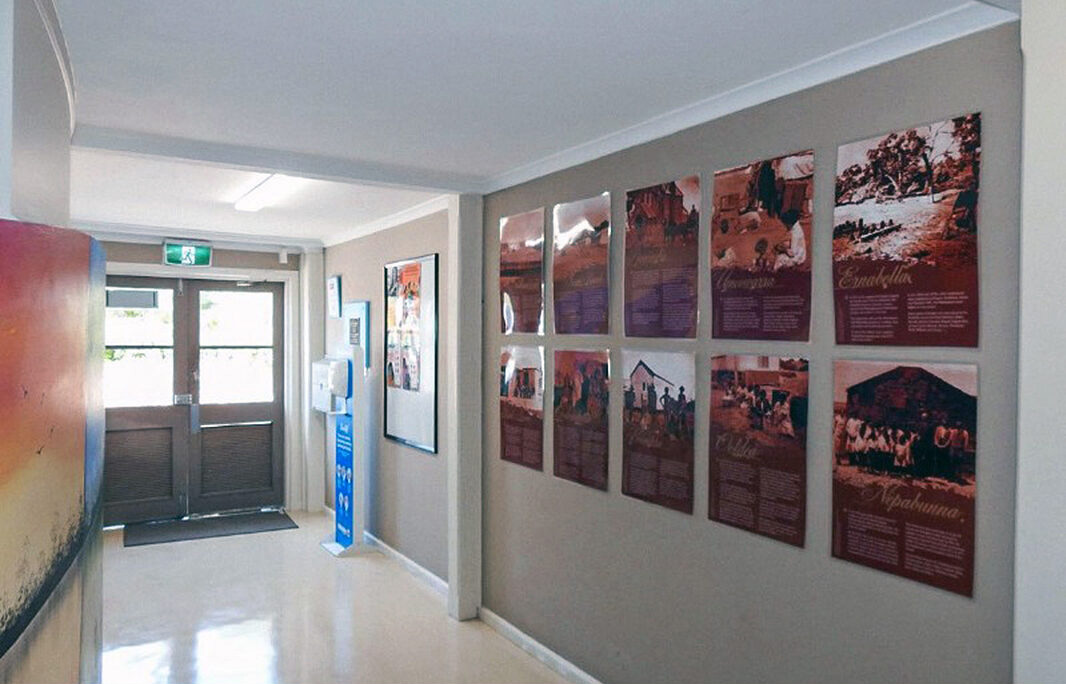
Moorundi is one of ten South Australian sites participating in the HCVPOCT program. Metropolitan sites include drug and alcohol services, prisons and local health networks. Besides Moorundi, other regional sites include Pangula Mannamurna Aboriginal Corporation in Mount Gambier and the rural city of Murray Bridge.
Viral Hepatitis Nurses Rosalie Altus and Lucy Ralton from the Southern Adelaide Local Health Network (SALHN) are planning a series of testing clinics at the local community venues, beginning mid-March.
Why Murray Bridge?
“Murray Bridge is an area with a lower socio-economic profile,” said Lucy.” Compared to metropolitan Adelaide, it has higher unemployment and people looking for work as well as people with disability. It’s also been deeply affected by drug use in recent years. These are factors associated with higher risk of hepatitis C infection.”
As part of the testing campaign, Hepatitis SA educators will provide free education sessions to workers in mental health care, community corrections, drug and alcohol services, other community services and GP networks. The sessions cover basic hepatitis C information, risk factors, diagnoses, treatment, the national point-of-care testing program and its roll out in Murray Bridge.
The Viral Hepatitis Nurses will coordinate with services which express interest in hosting the point-of-care testing clinics for their clients and work out the best time and format for each clinic location.
“It takes time for relationships with key local people and services to develop,” said Lucy. “We plan to trial regular sessions for six months, see what the uptake is like and adapt the where, when and how as we go so that we can optimise the opportunity to bring hepatitis C point of care testing to people in the Murray Bridge area.”
To the Community
Point-of-care testing is done by taking a small drop of blood with a finger stick and processing it in a portable GeneXpert machine that provides results within an hour. The portability of the equipment means testing can be taken to the community, to where people go regularly for other services.
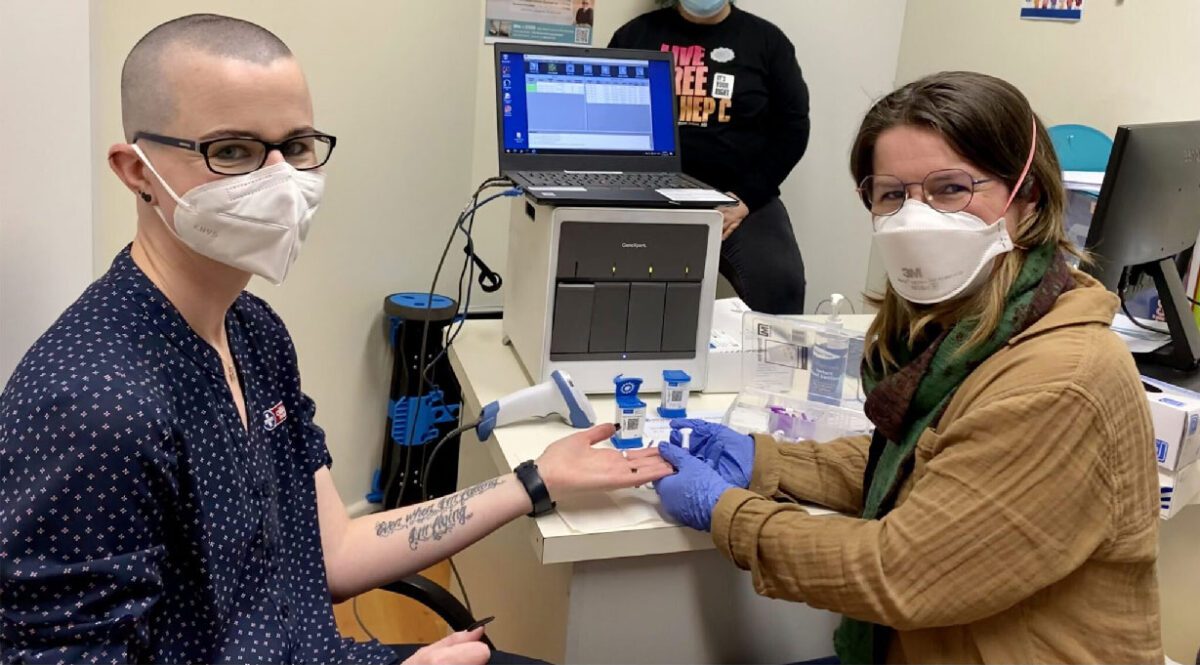
Hepatitis C can be cured with tablets taken daily for eight or twelve weeks. Close to 100 per cent are cured and re-treatment options are available to the very small percentage of people for whom treatment did not work the first time.
People who test positive at Moorundi run clinics can be booked with the Service’s GPs. “This will ensure the experience is culturally comfortable and non-intimidating,” said Beth.
Those who test positive by the Viral Hepatitis Nurses can be immediately referred on for treatment which can be managed by their general practitioners. For those who don’t have a GP, alternative arrangements can be made.
Just Call a Viral Hepatitis Nurse
“Metro-based Viral Hepatitis Nurse Consultants are experienced in working with individuals remotely to enable them to access hepatitis C testing and treatment,” Lucy explained. “We can arrange for blood tests, help interpret results, discuss results with patients over the phone, diagnose a hepatitis C infection and arrange for prescriptions if needed.
“We also check for other pre-treatment issues and support people through the treatment process and organise post treatment testing.
“These days, people don’t have to travel to a major centre to check their hepatitis C status or to get treatment. In South Australia, they can just call a Viral Hepatitis Nurse.”
About HCVPOCT
The National Australian HCV Point-of-Care Testing Program is run by The Kirby Institute, UNSW Sydney and the International Centre for Point-of-Care testing at Flinders University. It is funded by the Commonwealth Department of Health.
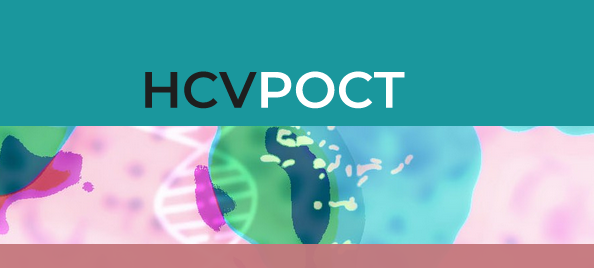
The Program aims to establish a network of sites to scale up point-of-care HCV testing in settings which provide services to people at higher risk of hepatitis C, in order to increase testing and linkage to treatment.
A total of 93 sites have registered including 27 prisons and 10 Aboriginal Community Controlled Health Organisation (ACCHO) sites. New South Wales leads the way with 44 sites, followed by Queensland with 23 and South Australia punching above its weight with 10.*
At the time of writing, 53 of the POC registered sites are operational and 139 people have been trained to operate the testing machines. Over 7,780 HCV point-of-care tests have been conducted via the Program, 7,020 people tested with 965 positive and 715 initiating treatment.
The HCVPOCT Program is the first internationally to evaluate whether increasing point-of-care HCV RNA testing will improve treatment uptake among people at-risk of HCV.
To find out more about getting point of care testing in South Australia, call the Hepatitis Sa Education Team on 1800 437 222.
For more on the national HCVPOCT program, call 02 9385 0900 or email .
Last updated 24 May 2024
More from:
Enjoyed this article? Subscribe to be notified whenever we publish new stories.
Subscribe for Updates
